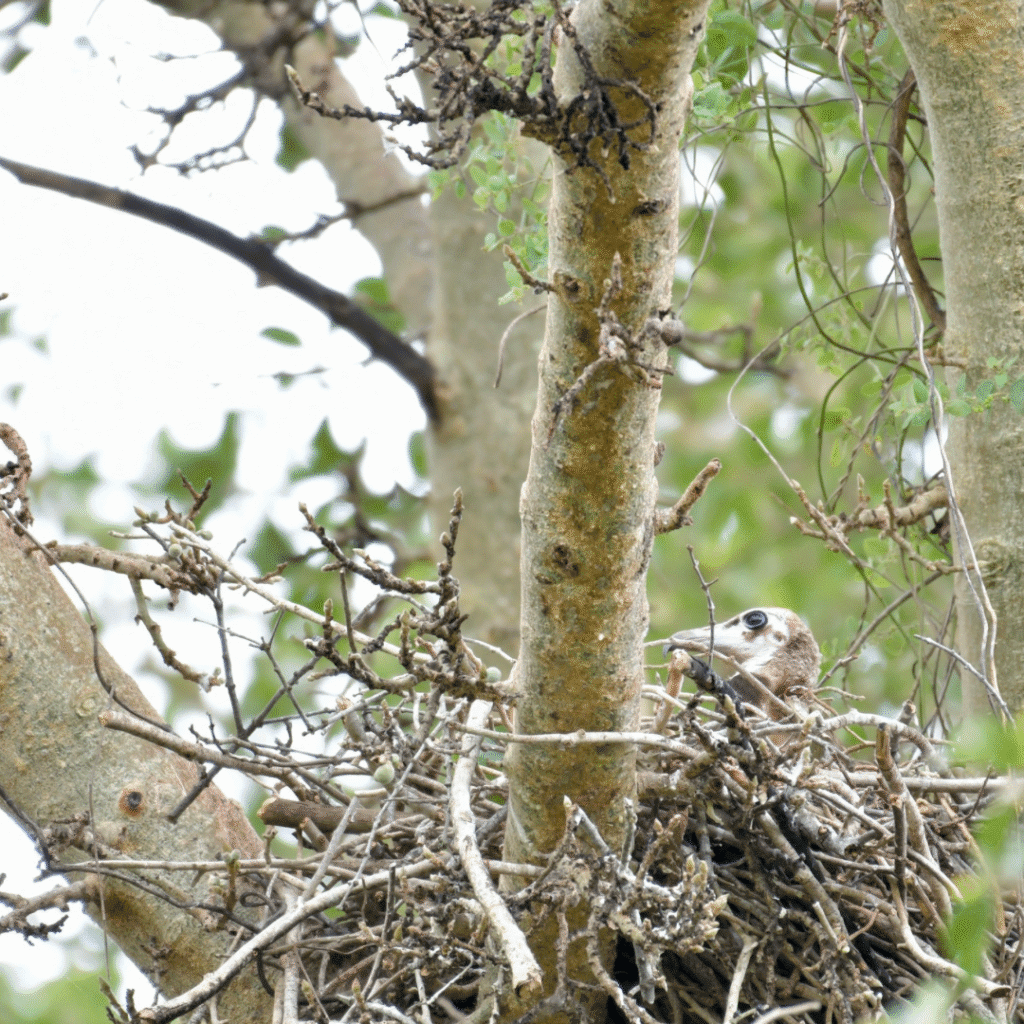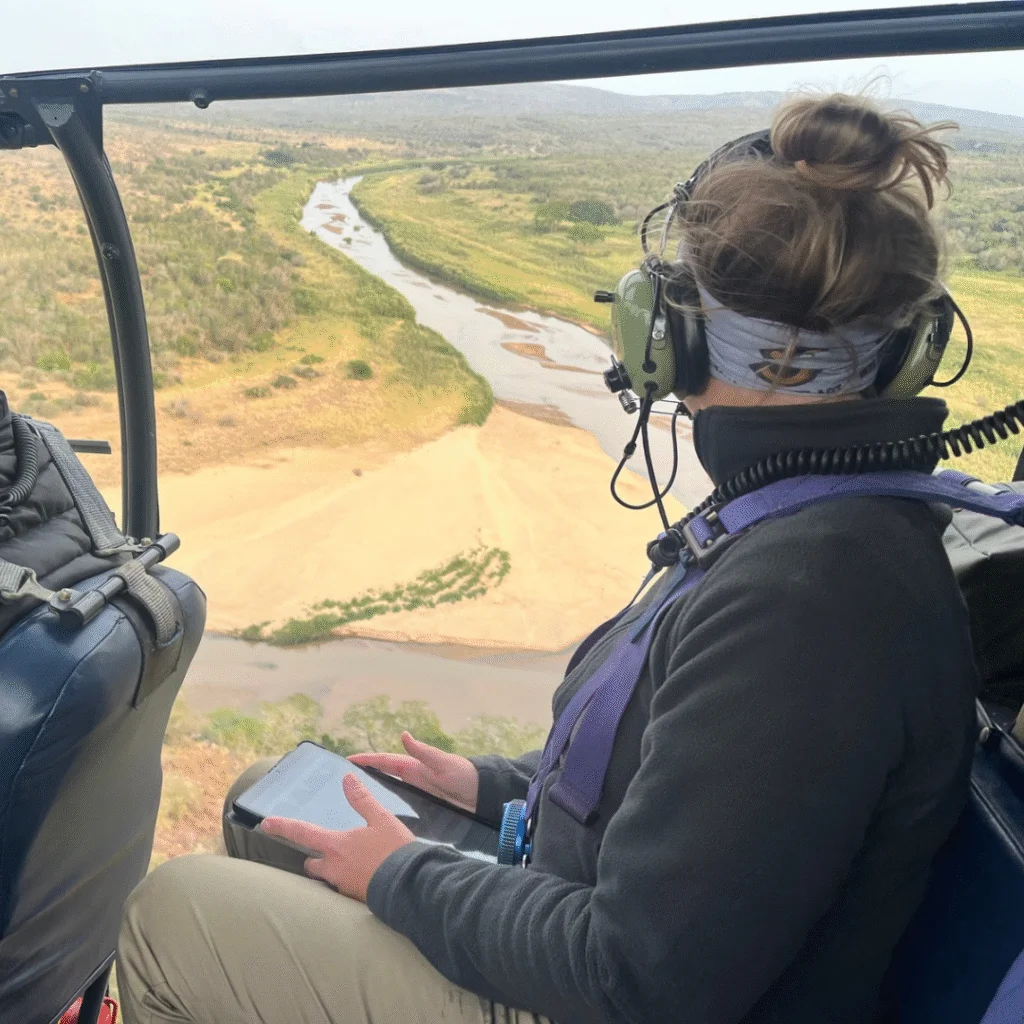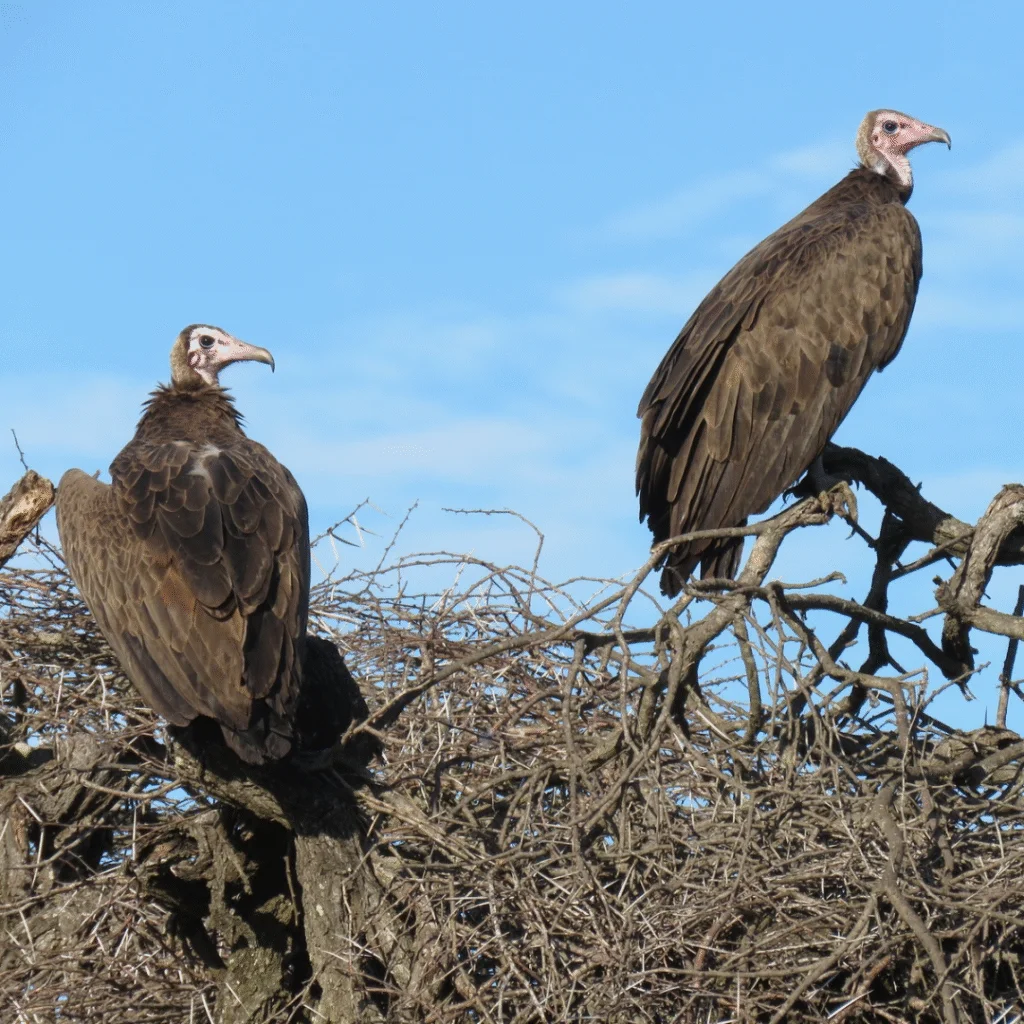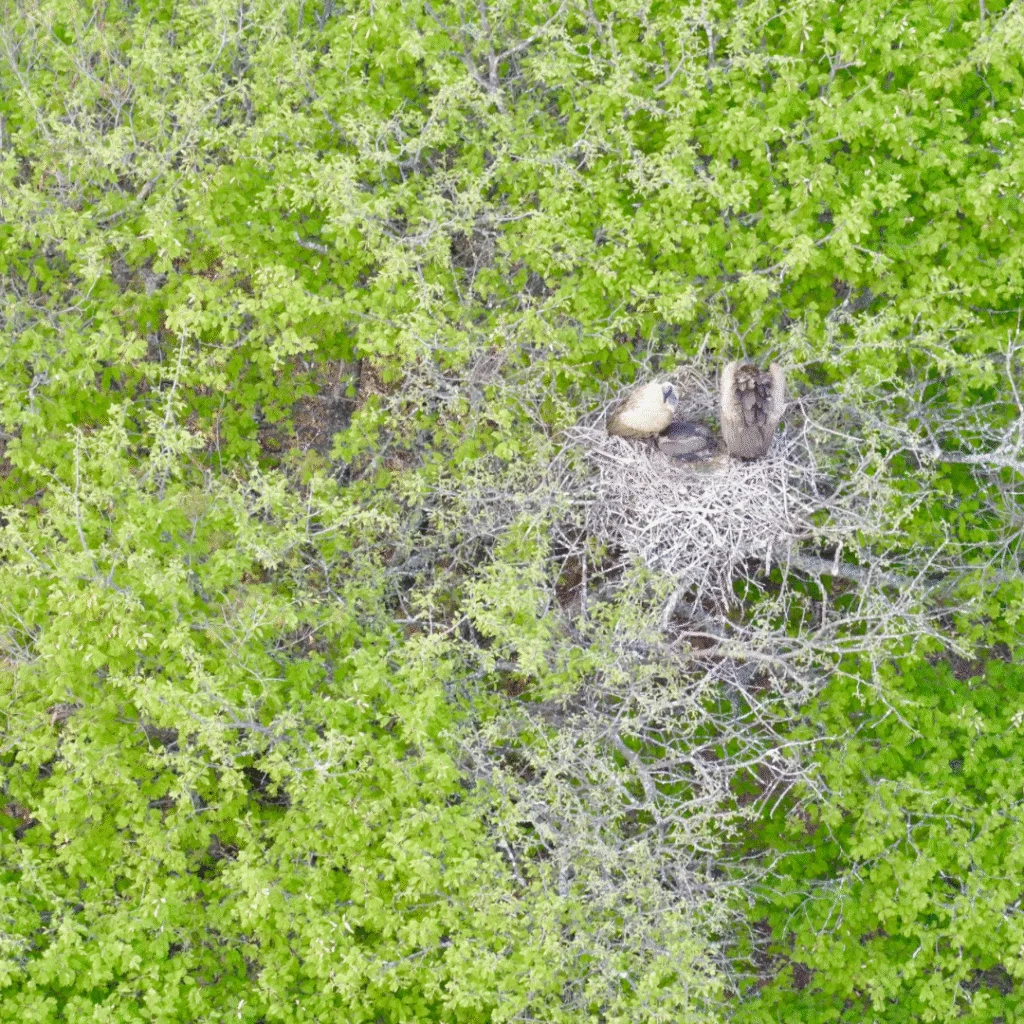

In the wild heart of Zululand, a remarkable discovery has given conservationists – and nature lovers alike – a reason to celebrate. For the first time ever, an active Hooded Vulture nest has been confirmed in KwaZulu-Natal. This marks not only a provincial milestone but also the southernmost breeding site ever recorded for this Critically Endangered bird.
The discovery, made during the 2025 Zululand Vulture Project Aerial Survey, is being hailed as a turning point for vulture conservation in South Africa. With fewer than 100 breeding pairs thought to remain in the country, every nest is precious. But this one, found perched high in northern Zululand, is rewriting what we know about the species’ range and resilience.
Every five years, a dedicated team of conservationists takes to the skies to monitor Zululand’s vulture populations. Wildlife ACT led this year’s aerial survey in partnership with Ezemvelo KZN Wildlife, The Bateleurs, and pilot Martin Schulze. However, the survey brought a mix of sobering realities and uplifting discoveries.
While researchers noted slight increases in Lappet-faced and African White-backed Vultures, White-headed Vultures remain absent. This latter fact is a worrying confirmation of their breeding extinction in the region. Yet among these findings, a single Hooded Vulture nest, home to a large chick, stood out as a beacon of hope. This little guy has no idea the happiness he has instilled in our country.
Brent Coverdale of Ezemvelo KZN Wildlife said: “Vultures are among the most threatened bird species in South Africa, and KwaZulu-Natal remains a critical region for their survival. The results of this survey highlight both the challenges and the opportunities we face. The loss of White-headed Vultures is a sobering reminder of what can happen if threats go unchecked, while the confirmation of a Hooded Vulture nest offers hope and renewed urgency for protecting these birds and the ecosystems they support.”

Smaller and shyer than its vulture cousins, the Hooded Vulture is instantly recognisable by its dark feathered hood and bare pink face. With a wingspan of around 1.6 metres and weighing between 1.5 and 2.6 kilograms, it may lack the bulk of larger scavengers. However, its role in the ecosystem is just as vital. Feeding on scraps left behind at carcasses, the Hooded Vulture helps ensure nothing goes to waste.
Its breeding behaviour is still something of a mystery — another reason why this confirmed nest is so valuable. The species is monogamous, typically raising one chick per year, which remains dependent for about seven months. For researchers, this nest provides an unprecedented opportunity to study and protect one of Africa’s rarest vultures which have proven to be quite resilient.

Often overlooked, vultures are nature’s ultimate clean-up crew. By removing carcasses quickly, they help prevent the spread of diseases like rabies, anthrax, and botulism. Without them, ecosystems falter and health risks increase, not just for wildlife, but for livestock and humans too.
“They are the under-appreciated custodians of ecosystem health,” explains Wildlife ACT’s Anel Olivier. “Without them, carcasses take longer to break down, diseases can spread more easily, and the natural balance of the environment begins to unravel. Without them, the consequences ripple far beyond the animal kingdom and into human health and the economy, especially in a landscape heavily dependent on the natural environment.”
However, vultures have since been the victim of targeted poisonings, the leading cause of vulture deaths in South Africa. Deliberate poisonings in KwaZulu-Natal are often linked to the illegal trade for traditional medicine or predator control. On the other hand, accidental poisonings can result from lead ammunition fragments or veterinary drugs.
Tree-nesting vulture breeding clusters in some key areas across Zululand have been wiped out within just a few years. And now, White-headed Vultures are considered extinct as a breeding species in the province too.

The Zululand Vulture Project is proof that conservation works best as a team effort. From conservation authorities and NGOs to farmers, landowners, and everyday citizens, protecting these birds requires eyes, ears, and hearts across the landscape.
Monitoring populations, responding to poisoning incidents, and securing safe feeding sites all contribute to protecting vultures in South Africa. The discovery of the Hooded Vulture nest serves as an important reminder about how valuable community collaboration is for the conservation of endangered species.
“This discovery is a milestone for vulture conservation, especially in KwaZulu-Natal,” said the Zululand Vulture Project’s spokesperson. “It shows that even when populations are under immense pressure, with the right monitoring and protection, these species can still surprise us. Confirming a Hooded Vulture nest for the first time in the province gives us new insight into their range and behaviour, and strengthens the case for continued collaboration and investment in vulture conservation.”
Kayleigh Huysamen, Wildlife ACT Educational Content Specialist and whose family spotted the nest, said: “It felt like an incredible privilege to discover this nest so close to our home. The fact that these Hooded Vultures chose to breed here, near a member of the Wildlife ACT team, feels like good fortune for the birds as well. Protecting this nest is about giving the species a real chance to recover.”
As South Africa moves forward with its National Biodiversity Management Plan for Vultures, confirmed in 2024, moments like this underscore the importance of collaboration. The survival of vultures may depend not just on scientists in helicopters, but on communities, landowners, and individuals willing to play their part.

And so, suddenly, the skies over KwaZulu-Natal hold a little more promise. With wings stretched wide, the Hooded Vulture’s return is more than just a conservation milestone. It’s a reminder that hope still soars where nature is given the chance.
Members of the public can help too by reporting any vulture activity through the Zululand Vulture Project’s website.
Stay up-to-date on the hottest, hippest and most happening things to do in Mzansi!
